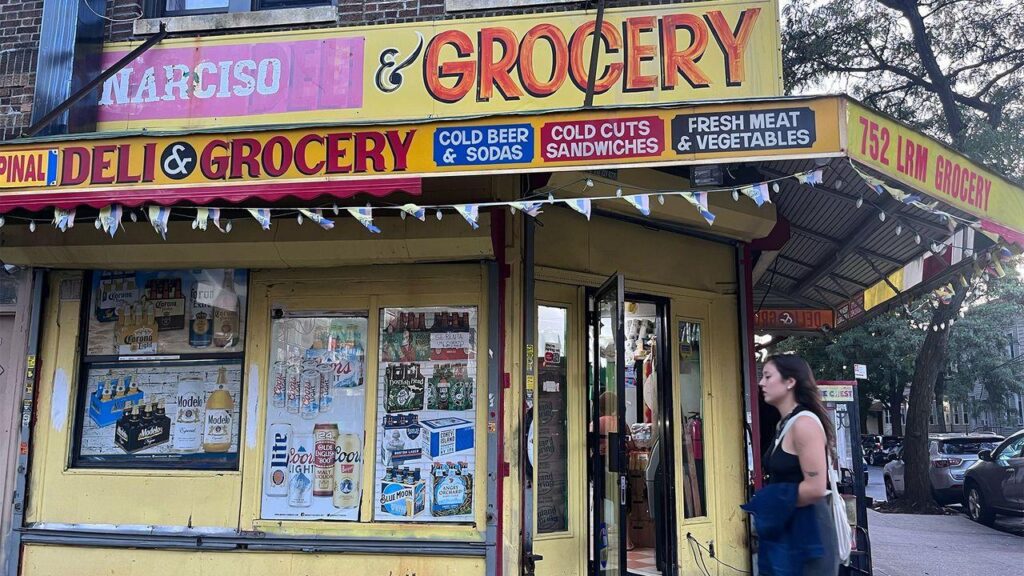How NYC’s Corner Bodegas Sustain Communities and Nourish Neighborhoods
Neighborhood Corner Stores: Pillars of Urban Life and Nutrition
Throughout New York City’s boroughs, corner bodegas represent far more than mere convenience stores; they are essential lifelines that nourish residents and uphold the cultural mosaic of the city. These small, often family-operated shops provide quick access to everyday necessities and culturally relevant foods, reflecting the rich diversity of their neighborhoods. Unlike large supermarkets, which may be located miles away and require lengthy commutes, bodegas offer immediate access to fresh produce, staple groceries, and specialty items tailored to immigrant and local tastes.
In areas increasingly affected by food insecurity and “food deserts,” these stores play a critical role in bridging gaps in healthy food availability. Their presence helps mitigate hunger and supports nutritional needs where larger retailers are scarce or absent.
The Social and Economic Significance of Local Bodegas
Beyond providing food, corner stores act as informal community centers where neighbors gather, exchange information, and build social bonds. They generate local employment opportunities and empower small business ownership, contributing to neighborhood economic vitality. These stores often serve as cultural anchors, offering products that resonate with the heritage and preferences of their clientele.
To illustrate their accessibility and impact, consider the average proximity and community role of various food sources in NYC:
| Food Source | Average Distance | Community Role |
|---|---|---|
| Corner Bodega | 0.2 miles | High – Daily nourishment & social hub |
| Supermarket | 1.5 miles | Moderate – Bulk shopping trips |
| Farmers’ Market | 0.8 miles | Seasonal fresh produce & cultural connection |
Obstacles Confronting NYC Bodegas in Delivering Healthy Food
Despite their importance, many bodegas face significant hurdles that hinder their ability to consistently offer affordable, nutritious options. One major challenge is the inefficiency in supply chains: small retailers often pay premium wholesale prices and experience irregular deliveries, limiting their capacity to stock fresh fruits and vegetables. High urban rents and narrow profit margins compel many owners to prioritize long-lasting processed goods over perishable healthy items, exacerbating food access disparities in vulnerable neighborhoods.
Additionally, regulatory complexities such as licensing requirements, health inspections, and zoning laws impose financial and administrative burdens. The growing competition from large grocery chains and online delivery platforms further threatens the economic sustainability of these local stores. The table below summarizes key challenges and their effects on food availability:
| Challenge | Effect on Food Access |
|---|---|
| Elevated Wholesale Prices | Reduced fresh produce availability; higher consumer prices |
| Unpredictable Delivery Schedules | Frequent stock shortages; inconsistent inventory |
| High Rent Costs | Limited retail space; fewer fresh food options |
| Regulatory Compliance | Increased operational expenses; tighter profit margins |
| Competition from Chains & Delivery Apps | Declining customer base; reduced revenues |
Empowering Local Economies Through Community-Led Efforts
At the core of neighborhood resilience is local ownership. Across NYC, bodega proprietors are leading grassroots movements to rejuvenate commerce and generate employment in areas often neglected by large retailers. These corner stores transcend retail functions, acting as cultural landmarks and critical access points for fresh and essential goods in underserved communities.
Several innovative programs have emerged to support these small businesses, including cooperative purchasing groups that reduce supply costs, targeted marketing campaigns that highlight unique local products, and skill-building workshops focused on business management and digital tools. A recent study revealed the positive outcomes of such initiatives:
| Program | Participation Rate | Average Revenue Growth | Jobs Created |
|---|---|---|---|
| Cooperative Purchasing | 65% | 12% | 5 |
| Community Marketing | 48% | 8% | 3 |
| Business Development Workshops | 72% | 15% | 7 |
These figures highlight not only economic gains but also the broader social benefits, including increased employment and stronger community engagement. Such grassroots efforts demonstrate how corner stores can evolve into thriving centers of urban vitality.
Policy Measures to Sustain and Enhance Corner Store Impact
To ensure corner bodegas continue to serve as indispensable community assets, targeted policy interventions are essential. Financial incentives like tax credits and grants can encourage stores to stock affordable, fresh produce and healthier alternatives. Reforming zoning regulations to allow greater flexibility in product offerings and services can reduce bureaucratic obstacles. Furthermore, educational programs that equip store owners with expertise in nutrition, marketing, and sustainable waste management can enhance operational success and public health outcomes.
Recommended strategies include:
- Funding refrigeration upgrades to maintain fresh food quality
- Fostering public-private partnerships to improve supply chains for healthy products
- Streamlining licensing processes for selling nutritious foods
- Providing community grants to incentivize local engagement and innovation
| Policy Focus | Recommended Action | Expected Community Benefit |
|---|---|---|
| Financial Assistance | Tax incentives and micro-grants | Lower costs, increased fresh food availability |
| Regulatory Flexibility | Eased zoning and simplified permits | Broader product selection, reduced red tape |
| Capacity Building | Owner training and technical support | Improved management and community trust |
| Collaborative Networks | Public-private partnerships | Stronger supply chains and economic resilience |
Final Thoughts: Preserving the Heartbeat of NYC Neighborhoods
As New York City continues to transform, its corner bodegas remain steadfast as vital community anchors—offering not only convenience but also connection and cultural continuity. These small businesses are integral to the city’s social and economic ecosystem, providing nourishment and a sense of belonging amid the urban hustle. Supporting and safeguarding the future of these neighborhood stores is essential to maintaining the diverse, vibrant character that defines New York City.













